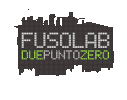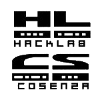Welcome
|
If you have just upgraded your wiki you are not in the wrong place. |
|
This page describes customizing MoinMoin's language support. New visitors to your wiki can be presented with a front page in their preferred language, or they can be forced to use the page you specify. You can also lock down the language used for translated pages and phrases within your wiki.
First go to SystemPagesSetup and unpack the system and help page packages for any language you want to support.
After that, just read the text below, decide which way you want to go and change your configuration.
For the impatient (you must set page_front_page to get rid of this page being the front page):
# choose this, if most wiki content is in a single language
page_front_page = u"MyStartingPage"OR
# choose this, if wiki content is maintained in multiple languages
page_front_page = u"FrontPage"If you go the single language way, you can copy some of the content of FrontPage to the page you choose as your page_front_page. Alternatively, if you have the rename action turned on in your wiki, you can rename your FrontPage to another name, then assign that name (for example, Welcome) to your 'page_front_page' variable.
If you go the multiple language way, don't forget to edit all translations of FrontPage.
![]() If you go the multiple languages way, people reaching your wiki will be directed to the front page corresponding to their browser language setting. If you did not prepare that page, they will see the default page for their language and have the impression the wiki is empty or badly maintained.
If you go the multiple languages way, people reaching your wiki will be directed to the front page corresponding to their browser language setting. If you did not prepare that page, they will see the default page for their language and have the impression the wiki is empty or badly maintained.
User interface texts and language_default
MoinMoin tries to adapt the user interface to the language the user prefers.
If the user puts a specific language preference into moin UserPreferences setting, that language will be used for the user interface. But the user doesn't even need to do that if he already has configured his browser with his language preferences.
If there is no specific UserPreferences language setting, moin tries to adapt to the languages the user configured in his browser. So if the browser tells moin that its preference is Canadian English, then German, then English in general and moin has German and English available (but not a specific configuration for Canadian English), then the user will get a German user interface.
If there is no common language in the user's browser configuration and in moin or if you have set language_ignore_browser = True, moin will fall back to using what is configured as language_default. This is also the case if the user's browser does not specify any language.
The usual case when you want to set language_ignore_browser = True is when running a local wiki with no international audience and you maintain the wiki in only one (your local) language. Don't forget to specify your one-and-only language using language_default when doing this.
System pages, including FrontPage
The MoinMoin distribution archive contains the system pages (like RecentChanges) in different languages (see SystemPagesGroup), selecting the correct language in the same way as for the user interface.
For example, if the navi_bar contains a link to FrontPage, moin will first look for a translation of FrontPage into the user's language. So if the user's language is German (de), we obtain the German translation of FrontPage, which is StartSeite. (Internally, moin uses MoinMoin/i18n/de.py for that, which is automatically generated out of de.po,) Moin will use StartSeite if that page actually exists; otherwise, it will fall back to using FrontPage.
This is fine if you want to have a FrontPage and translations of it. But what to do if you don't want that?
Either delete any translated page of FrontPage - they will only be used if they exist. Or simply use the page_front_page configuration variable to choose something different from FrontPage as your front page, e.g. MyProject. Moin will then try to look up a translation for MyProject, but usually won't find any - and thus simply use MyProject no matter what language the user prefers.
Built-in vs. user-specified translations
MoinMoin normally uses built-in translation (see MoinMoin/i18n/*) for translating user interface text and system page names in navi_bar.
But there is the possibility to customize navi_bar with your own stuff. Moin has no built-in translation for that usually, so what to do if you want to have them translated the same way as FrontPage usually is?
Simply create some pages like GermanDict, FrenchDict, Simplified_ChineseDict etc. (use the english name of the language) and put a definition list on them which defines the translations for the English terms, e.g. on page GermanDict:
MyProject:: MeinProjekt LatestNews:: NeuesteNachrichten
![]() Note the space before the lines. If you do not put that space, Moin will not consider the entries as dictionnary entries. See WikiDict for details.
Note the space before the lines. If you do not put that space, Moin will not consider the entries as dictionnary entries. See WikiDict for details.
Moin then will use those dict pages if it can't find the text in its built-in translation dictionaries.
How to specify the page language
It is highly recommended to specify the page language in the page header like this:
#language he
The language name is the iso-639-1 name of the language. Languages that moin does not support are ignored.
This is critical if the wiki contains content in different directions, like Hebrew pages, which should display in right to left direction, and English pages, which should display in left to right direction.
In the past, system pages had a language comment: ##language:en. This comment has no effect, and should be changed to the new #language en format. To repair old pages in your wiki, run scripts.repair_language.py in your wiki data directory. Back up your wiki data directory before doing this!








